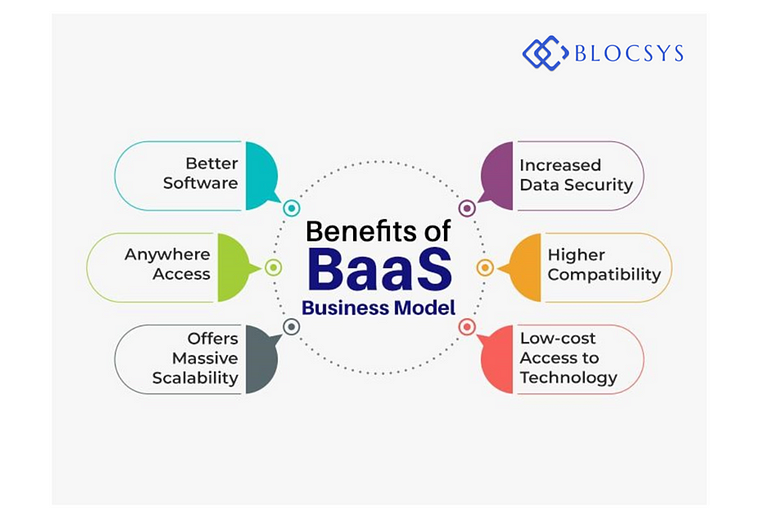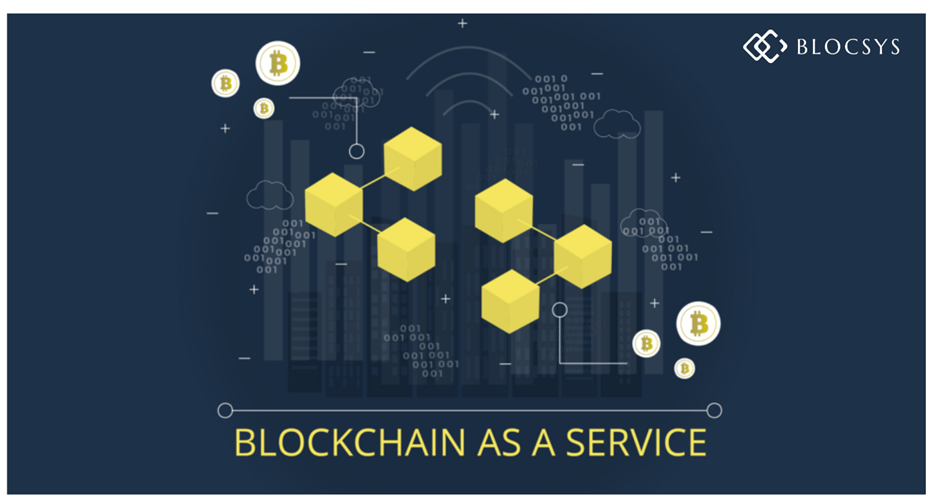As blockchain technology becomes more widely adopted, businesses and developers are increasingly looking for ways to integrate blockchain solutions without the complexity of building and maintaining their own infrastructure. This is where Blockchain as a Service (BaaS) comes in — a cloud-based solution that allows organizations to easily build, deploy, and manage decentralized applications (dApps) without having to invest heavily in backend infrastructure. Similar to Software as a Service (SaaS), BaaS provides a ready-made platform for businesses to leverage blockchain’s potential, making it the easiest and most efficient way to enter the world of decentralized applications.

What is Blockchain as a Service (BaaS)?
At its core, BaaS is a third-party service that provides businesses and developers with the infrastructure and tools needed to create and manage blockchain-based applications. It allows companies to focus on their application development and functionality while the service provider takes care of the backend, such as managing nodes, handling security, and ensuring network uptime.
BaaS is particularly useful for businesses that are new to blockchain, as it reduces the barrier to entry. It eliminates the need for hiring blockchain experts, setting up nodes, or handling the complexities of maintaining a distributed ledger system.

Key Features of BaaS
BaaS platforms typically offer a range of features designed to streamline blockchain development:
⦁ Pre-Built Frameworks and Templates
Many BaaS platforms provide pre-built templates for common blockchain use cases, such as supply chain tracking, token issuance, and digital identity management. This saves developers time and effort, allowing them to customize applications based on their specific needs.
⦁ Automated Infrastructure Management
One of the biggest advantages of BaaS is that it automates many aspects of blockchain infrastructure, including setting up and maintaining nodes, managing storage, and ensuring security. This allows businesses to focus on innovation rather than infrastructure.
⦁ Interoperability with Other Systems
BaaS solutions often provide APIs and SDKs that enable integration with existing systems, making it easier for businesses to integrate blockchain into their current workflows. This level of interoperability ensures that companies can leverage blockchain without having to overhaul their entire IT infrastructure.
⦁ Scalability
BaaS platforms are designed to scale as your business grows. Whether you’re handling a small project or a large-scale decentralized application with thousands of users, BaaS allows you to scale your blockchain infrastructure seamlessly, ensuring optimal performance at all times.
⦁ Security and Compliance
Security is a critical concern when dealing with blockchain technology. BaaS providers take care of security management, including encryption, network monitoring, and compliance with relevant regulations. This ensures that businesses can deploy their blockchain solutions with confidence.
Benefits of BaaS for Businesses
BaaS offers numerous benefits for businesses looking to harness the power of blockchain technology:
⦁ Lower Costs
Building a blockchain infrastructure from scratch can be expensive. By using BaaS, companies can avoid upfront infrastructure costs and reduce ongoing maintenance expenses. This makes blockchain adoption more affordable for businesses of all sizes.
⦁ Faster Time to Market
With pre-built frameworks, automated infrastructure management, and integration tools, BaaS significantly reduces the time it takes to develop and deploy decentralized applications. This means businesses can get their products and services to market faster, gaining a competitive advantage.
⦁ Focus on Innovation
By outsourcing the technical complexities to a BaaS provider, businesses can focus on what really matters — innovating and creating value for their customers. This allows developers to spend more time building features that enhance user experiences rather than worrying about infrastructure management.
⦁ Flexible Development Environment
BaaS platforms are typically cloud-based, which means they offer a flexible development environment. Teams can collaborate remotely and scale resources up or down depending on the project’s needs. This flexibility is crucial for businesses looking to adapt to changing market conditions.
⦁ Access to Expertise
Many BaaS providers offer support from blockchain experts who can guide businesses through the development process, ensuring that best practices are followed and that the application is secure, scalable, and compliant.

Popular BaaS Platforms
Several cloud service providers offer BaaS solutions, each with its own set of tools and features. Some of the most popular BaaS platforms include:
⦁ Microsoft Azure Blockchain
Microsoft Azure’s BaaS platform provides a range of tools and services for building blockchain applications, including templates for common use cases, pre-configured blockchain networks, and easy integration with other Azure services.
⦁ Amazon Managed Blockchain
Amazon Web Services (AWS) offers Amazon Managed Blockchain, which allows businesses to create and manage scalable blockchain networks using popular frameworks like Hyperledger Fabric and Ethereum.
⦁ IBM Blockchain
IBM’s Blockchain Platform provides a comprehensive set of tools for building, running, and governing blockchain networks. It’s known for its robust security features and is commonly used for enterprise-grade applications.

Oracle Blockchain
Oracle offers a BaaS solution focused on providing seamless integration with existing Oracle Cloud services. It also emphasizes ease of use, making it a popular choice for businesses new to blockchain.
Use Cases of BaaS
BaaS is being used across various industries to enable decentralized applications and services:
⦁ Supply Chain Management: BaaS allows businesses to build transparent supply chain solutions, tracking goods from production to delivery with immutability and accuracy.
⦁ Financial Services: BaaS is being used to create decentralized finance (DeFi) applications, such as smart contracts for loans, payments, and asset management.
⦁ Healthcare: Blockchain-based healthcare applications built using BaaS can securely manage patient data and ensure privacy while allowing for interoperability between different healthcare providers.
⦁ Real Estate: In real estate, BaaS is being used to create smart contracts that streamline property transactions and reduce the need for intermediaries, resulting in faster, more efficient processes.
The Future of BaaS
As blockchain technology continues to evolve, the demand for BaaS is expected to grow. With major tech companies offering BaaS platforms and new innovations emerging, businesses will have access to even more powerful tools for building decentralized applications. The future of BaaS will likely include more industry-specific solutions, enhanced security features, and deeper integration with artificial intelligence and machine learning technologies.
Conclusion
Blockchain as a Service (BaaS) is revolutionizing the way businesses build and deploy decentralized applications. By offering a ready-made platform that handles the complexities of blockchain infrastructure, BaaS makes blockchain accessible, cost-effective, and easy to implement. As the blockchain ecosystem expands, BaaS will continue to play a crucial role in driving widespread adoption, making decentralized applications the future of innovation across industries.
BaaS is the gateway for businesses to harness the full potential of blockchain technology — without the hassle of managing the underlying infrastructure.







